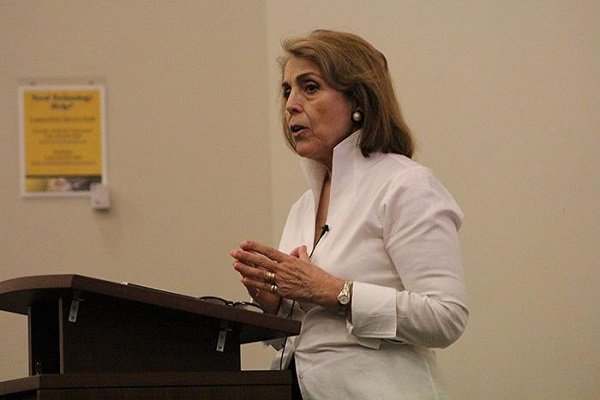‘IRGC has always been target of American and regional states animosity’

TEHRAN - Shireen Tahmaasb Hunter, a professor of political science at Georgetown University, tells the Tehran Times that “The designation of IRGC as a terrorist organization by the Trump administration is another step in Washington's policy of incrementally increasing pressure on Iran in the hope of forcing it to negotiate, and in the process agree to change some aspects of its foreign policy, notably those vis a vis the Arab-Israeli conflict.”
“I suppose who persuaded Trump to declare the IRGC a terrorist organization are trying to create a situation wherein war becomes inevitable,” Hunter says.
She adds that “IRGC has always been the target of American and regional states animosity.”
Following is the text of the interview:
Q: What was the goal of the designation of IRGC as a foreign terrorist group?
A: The designation of IRGC as a terrorist organization by the Trump administration is another step in Washington's policy of incrementally increasing pressure on Iran in the hope of forcing it to negotiate, and in the process agree to change some aspects of its foreign policy, notably those vis a vis the Arab-Israeli conflict. Washington hopes that these pressure would convince Iran to stop its financial and military help to groups such as the Hizbollah and the Houthis in Yemen and, in general, end its hostile policies toward America. Because the IRGC has been active in places such as Lebanon, Iraq and Syria and its Quds branch is committed to liberating Palestine, it has always been the target of American and regional states animosity. Moreover, America believes that the IRGC yields the real power in Iran rather than the official government. So they want the IRGC to begin feeling the pain of sanctions more directly. By designating IRGC as a terrorist organization America, or at least John Bolton and Michael Pompeo, are also signaling to Tehran that US is determined to increase pressure on Iran, including possibly running the risk of direct military confrontation with it.
Q: What will be the impact of this decision on regional security?
A: Much would depend on the response of the Iranian government and the IRGC. If the IRGC carries through with its promise of making the region unsafe for American troops, then the risk of an all-out regional conflict will sharply increase. Any attack by the IRGC on American forces will create irresistible pressure in Washington for American retaliatory attack on Iranian targets. This could easily escalate to a much broader conflict. I fear that any military encounter between the IRGC and the American forces would lead to US attacks on Iran. However, the extent of these attacks cannot be predicted. I suppose who persuaded Trump to declare the IRGC a terrorist organization are trying to create a situation wherein war becomes inevitable.
Q: Some argue that “This is the first time in the history of international relations when the government of one nation-state single-handedly has designated a military segment of another recognized nation-state as a terrorist organization”. What is your opinion?
A: I am not aware of any previous situation where a branch of a country's army was designated as a terrorist organization. However, America sees the IRGC more as a para-military outfit specifically designed to export Iran's Islamic revolution to the rest of the Middle East and the Muslim world. It also sees it as guilty of carrying out mots of Iran's military operations in places like Iraq, Syria and Lebanon. It does not see it as a legitimate part of Iran's Armed Forces (Artesh).
Q: Can we see more sanctions from President Trump administration against Iran?
A: Pompeo /Bolton policy towards Iran has been that of pressuring it to a point where it could no longer resist and thus is forced to accept America's conditions. Failing that, they hope that more pressure will result in the toppling of the current regime from within. Therefore, they will try whatever instruments of pressure that remain against Iran. However, it is difficult to see what more America can do to pressure Iran short of launching a military attack. A naval blockade perhaps? But that is an act of war and will certainly lead to armed conflict. In general, the current escalation of crisis between US and Iran does not bode well for the future. Authorities in Tehran should not wait for Trump's departure to de-escalate the crisis. Most probably he will be reelected.
Leave a Comment